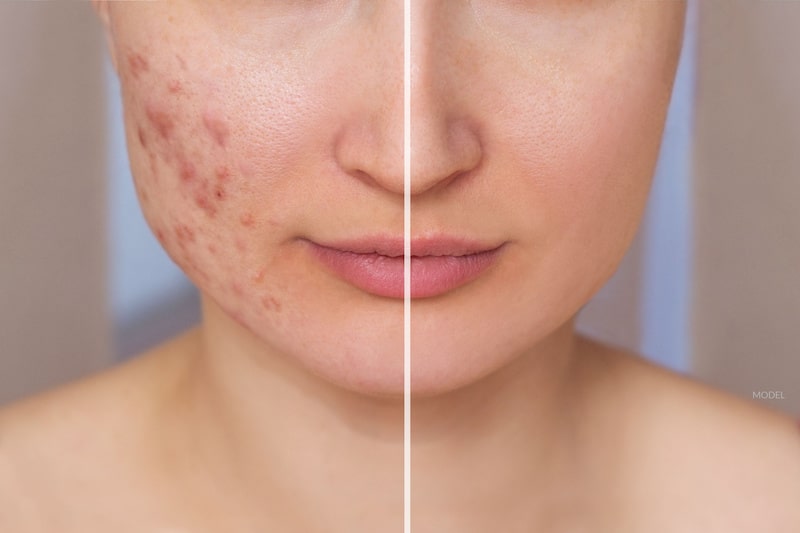After undergoing acne scar treatment in Dubai (علاج ندبات حب الشباب في دبي), your skin begins a delicate healing process. Whether you’ve chosen laser resurfacing, microneedling, chemical peels, or any other method, the post-treatment phase is crucial for achieving smooth, clear, and healthy skin. Many people focus on the treatment itself, but what you do afterward can make the biggest difference in how your skin heals and how effective your results are.
To help you get the most out of your treatment, let’s explore what you should avoid after acne scar treatment in Dubai, along with some essential recovery tips.
Why Post-Treatment Care Matters?
Acne scar treatment in Dubai aims to rejuvenate your skin by encouraging collagen production, resurfacing the skin’s top layers, or stimulating cellular renewal. After treatment, the skin becomes more sensitive and vulnerable to irritation, infection, and hyperpigmentation.
Ignoring aftercare instructions or resuming normal activities too quickly can delay recovery or even reverse your progress. Taking proper precautions ensures you maintain a smooth texture and even tone while protecting your investment in clear, healthy skin.
Avoid Direct Sun Exposure:
One of the most important rules after acne scar treatment in Dubai is to stay away from direct sunlight. Your skin is particularly sensitive to UV rays after treatment, which can lead to dark spots, redness, or uneven pigmentation.
Even a few minutes of unprotected sun exposure can affect your healing process. If you must go outside, always wear a broad-spectrum sunscreen with SPF 30 or higher, and reapply it every few hours. Using hats and umbrellas adds an extra layer of protection.
Sun protection isn’t just for the first few days — it’s a long-term commitment that helps preserve your results and keeps your skin healthy.
Don’t Pick or Scratch the Skin:
After treatment, it’s common for your skin to feel tight, dry, or slightly itchy. Some treatments, such as laser or chemical peels, may cause mild flaking or peeling as dead skin cells shed naturally.
While it might be tempting to touch or peel these areas, doing so can cause scarring or infection. Allow your skin to heal on its own. Picking or scratching can also lead to new scars, undoing the benefits of your acne scar treatment in Dubai.
To soothe irritation, use gentle moisturizers and hydrating serums recommended for sensitive skin.
Avoid Harsh Skincare Products:
Post-treatment skin requires gentle care. Avoid using harsh cleansers, exfoliating scrubs, retinoids, or products containing alcohol or acids (like glycolic or salicylic acid) for at least a week, unless advised otherwise.
These ingredients can irritate freshly treated skin and cause redness or peeling. Instead, stick to mild, fragrance-free cleansers and lightweight, non-comedogenic moisturizers to support healing.
Hydration is key during recovery, so use soothing products with hyaluronic acid, aloe vera, or ceramides to lock in moisture and reduce sensitivity.
Skip Intense Exercise and Heat Exposure:
After acne scar treatment in Dubai, it’s best to avoid heavy workouts, saunas, and steam rooms for several days. Sweating can irritate treated skin and increase the risk of bacterial infection.
Heat exposure also dilates blood vessels, which may worsen redness and swelling. Give your skin time to settle before resuming any strenuous physical activities.
Instead, opt for light stretching or low-intensity walks if you want to stay active while your skin heals.
Avoid Makeup for the First 24–48 Hours:
While it might be tempting to cover redness or minor swelling, wearing makeup too soon after treatment can clog pores and slow the healing process. Many foundations and concealers contain ingredients that can irritate sensitive skin or cause breakouts.
If you need to wear makeup, wait at least 24 to 48 hours after your acne scar treatment in Dubai and choose mineral-based, non-comedogenic products. Always clean your brushes and sponges thoroughly to prevent bacteria buildup.
Don’t Neglect Hydration and Nutrition:
What you put into your body is just as important as what you apply on your skin. Staying hydrated helps your skin regenerate faster, while a balanced diet rich in vitamins A, C, and E supports collagen production and repair.
Avoid excessive caffeine, processed foods, and sugary snacks, which can delay healing or trigger inflammation. Focus on nutrient-dense foods like fruits, vegetables, and healthy fats to enhance recovery and improve skin elasticity.
Avoid Smoking and Alcohol:
Both smoking and alcohol can slow down your body’s natural healing process. Nicotine restricts blood flow and reduces oxygen supply to your skin, while alcohol dehydrates your body and delays collagen repair.
To maximize the results of your acne scar treatment in Dubai, try to avoid smoking and limit alcohol consumption for at least a few weeks post-treatment. This helps maintain long-lasting results and keeps your complexion radiant.
Don’t Expect Instant Results:
It’s important to remember that acne scar treatment in Dubai delivers results gradually. Collagen remodeling and skin regeneration take time, especially for deeper scars. While you may notice some improvement after the first session, optimal results often appear over several weeks or after multiple treatments.
Patience and consistency are key. Following aftercare instructions carefully will ensure smoother, clearer, and more even-toned skin in the long run.
Final Thoughts:
After investing in acne scar treatment in Dubai (علاج ندبات حب الشباب في دبي), proper aftercare is essential to protect your skin and enhance your results. Avoiding sun exposure, harsh products, heat, and other irritants gives your skin the best chance to heal beautifully.
By practicing patience, staying hydrated, and following a gentle skincare routine, you can enjoy long-term improvements in skin texture and tone. Remember, post-treatment care is just as important as the treatment itself — your commitment determines the outcome.







